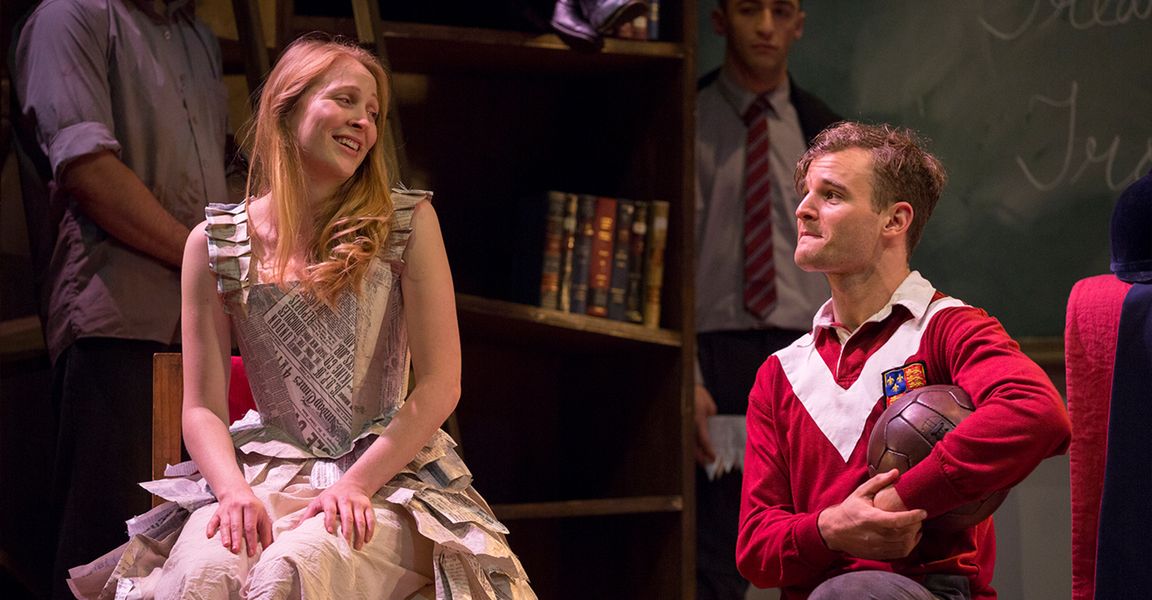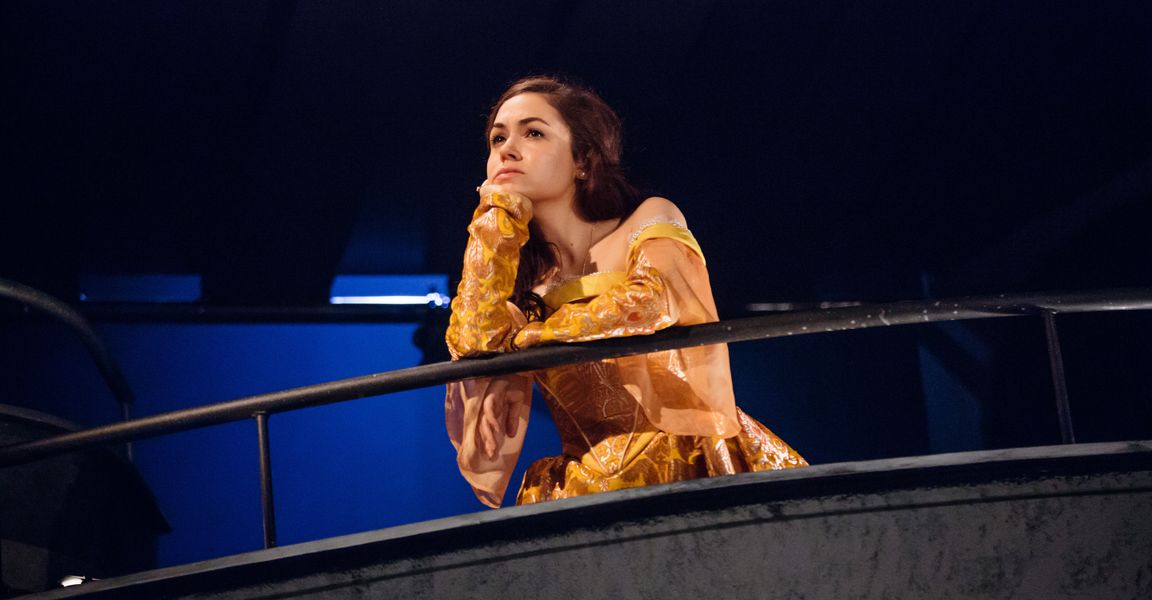




In the countdown to Valentine’s Day, we asked an expert panel to select 10 of Shakespeare’s most romantic moments. Today we look at three more moments that give us the warm and fuzzies.
Compiled by Andy McLean
Join the debate
Which moments in Shakespeare float your love boat? Do you agree or disagree with the experts’ selections? Share your view on Twitter, Facebook, Instagram or LinkedIn.
4. Viola expresses the exquisite purity of heartache
In Twelfth Night, Viola takes romantic complication to a whole new level. Disguised as a boy, she’s quickly trapped in a love triangle with Orsino and Olivia. “That twist increases Twelfth Night's comic possibilities, as well as Viola's emotional range,” explains American academic Professor Robert Viking O'Brien. “Her pity for her rival (Olivia) makes Viola one of Shakespeare's most thoughtful comic heroines.”
Viola is as quick-witted as Rosalind in As You Like It and Beatrice in Much Ado About Nothing, according to O’Brien. In the play, she tells Orsino how much suffering love is causing her – but in coded language that goes way over Orsino’s head. And it’s the climax of that suffering, in the play's last scene, that O’Brien picks out as the most romantic in Shakespeare:
“When Orsino, believing that Viola has betrayed him with Olivia, says, ‘Come, boy, with me. My thoughts are ripe in mischief: / I’ll sacrifice the lamb that I do love, / To spite a raven’s heart within a dove’, he could say little that would be more painful to Viola. He loves Viola in her guise as a man, but that love is inconsequential compared to the pain of Olivia's rejection: he vows to kill Viola (his lamb) to strike back at Olivia (the raven-hearted dove).
Viola responds to this cruelty by saying, ‘And I, most jocund, apt and willingly, / To do you rest, a thousand deaths would die.’”
Her words operate on multiple levels, explains O’Brien. “There is a religious level: Viola, who has just been called a lamb, is willing to sacrifice herself for a man who doesn't deserve that sacrifice. There's also a double entendre using ‘dying’ as a synonym for orgasm. And on an emotional level, Viola's response is one of the most powerful expressions of love in all of Shakespeare. Viola loves Orsino so much that she is willing to die simply to ease his pain – it's hard to get more romantic than that.”



3. King Henry V finally meets his match
Henry V is the all-action hero who conquers everything before him. Ferocious foreign armies? Piece of cake. Devious traitors? Too easy. Conniving church leaders? No worries. But then, at the end of Henry’s adventures, we discover the one thing that can bring him to his knees:
Yep, you guessed it. Love, sweet love.
Social researcher and author Rebecca Huntley takes up the story: “Henry, the English king, struggles to convince Catherine, the French princess, that he’s husband material. As she points out, it doesn’t help he has just conquered her country. She exasperates him and he wishes out loud that that winning a woman's heart was as easy as winning a battle (‘If I could win a lady at leap-frog, or by vaulting into my saddle with my armour on my back … I should quickly leap into a wife’). Finally, he wins her over by attempting to speak French, and she responds well to his vulnerability … or at least his best efforts.”
Bell Shakespeare Resident Artist in Education Huw McKinnon adds, “Henry can turn on a dime and talk to anybody in the right way. But then in this scene he suddenly can’t. It’s not just the language barrier – he admits he just doesn’t know how to talk to women. So, it’s really lovely to see this man of words so lost for words.”
2. Romeo and Juliet’s balcony scene (of course)
“The most romantic moment in Shakespeare has to be the balcony scene in Romeo and Juliet,” enthuses actor Julia Billington. “It’s hard to pick the precise moment in this scene because it's all so good. But Romeo watching Juliet and speaking about how gorgeous she is, then approaching to speak to her, before pulling back... It's just teenage crush heaven!
“Then we have Juliet saying she wishes she could withdraw her spoken vow of love because she wants to say it frankly again. And then she realises that she’s wishing for the thing she already has. She says her ‘bounty is as boundless as the sea’ and her ‘love as deep’ and that the more she gives the more she has because ‘both are infinite’!
“I mean come on! When saying ‘I love you’ endlessly doesn't feel like it's enough then you know you've reached peak romance!”
There are so many reasons that this has become the most famous scene in the history of the English language, according to Bell Shakespeare Associate Director James Evans. “It’s partly because they can’t physically touch – they have to use words to reach one another. There’s something about that distance that makes the language even more potent.
“The romantic imagery in that scene is the best he ever wrote. Juliet’s description of love is so deeply profound coming from a young woman speaking to a young man.
“It’s also romantic because it’s dangerous. It’s three in the morning, outside her house and – at any moment – someone could discover Romeo and kill him.
“And there’s just this sense that this is a stolen moment for the two of them. Before events spiral out of control soon after, there’s this moment where time is suspended.”
Read part 1 in our series about romantic moments in Shakespeare
Read part 2 in this series
To be continued…
Stay tuned on social media in the coming days as we continue to share the love in Shakespeare. Follow us on Twitter, Facebook, Instagram and LinkedIn.
Keep in touch
Sign up to a range of Bell Shakespeare enewsletters